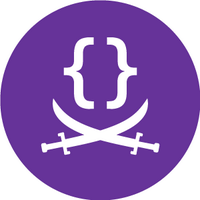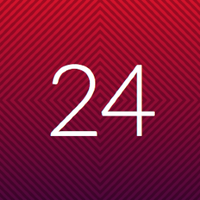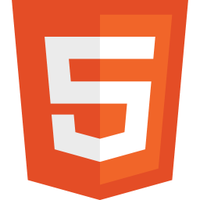How to keep up to date on Front-End Technologies
The web is a rapidly
evolving universe. An important part of our job as front-end developers
is keeping up to date and staying close to new tools, trends and
workflows.
Hundreds of blog posts and articles are published every day, but there is no way you can read all of them. We think you should have a strategy to keep up to date, so we have created this recipe.
Hundreds of blog posts and articles are published every day, but there is no way you can read all of them. We think you should have a strategy to keep up to date, so we have created this recipe.
Follow cool people
Front-end leaders help you to stay on top of relevant news and trends. They are in-the-know and they work on a specific topic.Twitter can be a great place to find people who are in-the-know.
-
Addy Osmani
 @addyosmani
@addyosmani
-
Alex Sexton
 @SlexAxton
@SlexAxton
-
Angelina Fabbro
 @hopefulcyborg
@hopefulcyborg
-
Angus Croll
 @angustweets
@angustweets
-
Axel Rauschmayer
 @rauschma
@rauschma
-
Ben Alman
 @cowboy
@cowboy
-
Brad Frost
 @brad_frost
@brad_frost
-
Chris Coyier
 @chriscoyier
@chriscoyier
-
Christian Heilmann
 @codepo8
@codepo8
-
Cody Lindley
 @codylindley
@codylindley
-
David Walsh
 @davidwalshblog
@davidwalshblog
-
Elijah Manor
 @elijahmanor
@elijahmanor
-
Eric Bidelman
 @ebidel
@ebidel
-
Estelle Weyl
 @standardista
@standardista
-
Ilya Grigorik
 @igrigorik
@igrigorik
-
John Resig
 @jeresig
@jeresig
-
Lea Verou
 @leaverou
@leaverou
-
Luke Wroblewski
 @lukew
@lukew
-
Nicholas C. Zakas
 @slicknet
@slicknet
-
Nicole Sullivan
 @stubbornella
@stubbornella
-
Paul Irish
 @paul_irish
@paul_irish
-
Rebecca Murphey
 @rmurphey
@rmurphey
-
Steve Souders
 @souders
@souders
-
Thomas Fuchs
 @thomasfuchs
@thomasfuchs
Find the best sources
Around the web there is lots of useful information about front-end news and trends, but sometimes it's too hard to find and read all of them. It's a mess and you will go crazy!Therefore, we have put together the best sources about news and trends in the front-end world.
Blogs
-
DailyJS
 A JavaScript Blog.
A JavaScript Blog.
-
The Morning Brew
A Daily .NET Software Development Link Blog.
-
Treehouse Blog
 The Treehouse blog provides valuable content on web development, web design, and startup tips.
The Treehouse blog provides valuable content on web development, web design, and startup tips.
-
EchoJS
 A HackerNews-like site dedicated to JavaScript and Front-end News.
A HackerNews-like site dedicated to JavaScript and Front-end News.
-
.net Magazine
 .net is the world’s best-selling magazine for web designers and developers.
.net is the world’s best-selling magazine for web designers and developers.
-
Web Platform
 An open community of developers building resources for a better web.
An open community of developers building resources for a better web.
-
HTML5 ROCKS
 Posts, tutorials, case study & demos.
Posts, tutorials, case study & demos.
-
HTML5 Doctor
 A blog to help you learn more about HTML5.
A blog to help you learn more about HTML5.
-
Nettuts+
 Tutorials, articles, tips, and community for web developers.
Tutorials, articles, tips, and community for web developers.
-
QuirksMode
 It is the prime source for browser compatibility information on the Internet.
It is the prime source for browser compatibility information on the Internet.
-
CSS-TRICKS
 A web design community.
A web design community.
-
CSS Wizardry
 A specialised blog in writing and scaling CSS for large apps and websites.
A specialised blog in writing and scaling CSS for large apps and websites.
-
Smashing Magazine
 An online magazine for professional Web designers and developers.
An online magazine for professional Web designers and developers.
-
24 ways
 Geeks publish a daily dose of web design and development.
Geeks publish a daily dose of web design and development.
-
A List Apart
 Design, development, and web content, focused on standards and best practices.
Design, development, and web content, focused on standards and best practices.
-
JSCentral
 JavaScript news and links.
JavaScript news and links.
-
JSGoodies
 Mainly web-focused; in particular, most are JS-focused.
Mainly web-focused; in particular, most are JS-focused.
-
SitePoint
 An online media company providing cutting-edge content for web professionals.
An online media company providing cutting-edge content for web professionals.
Weekly News
-
Open Web Platform Daily Digest
Provides daily content about W3C, HTML, CSS, JavaScript, the Web APIs, web browsers.
-
Web Design Weekly
 Pure awesome links to the best news and articles to hit the interweb during the week.
Pure awesome links to the best news and articles to hit the interweb during the week.
-
CSS Weekly
 Roundup of css articles, tutorials, experiments and tools.
Roundup of css articles, tutorials, experiments and tools.
-
HTML5 Weekly
 Round-up of HTML5 and browser technology news and links.
Round-up of HTML5 and browser technology news and links.
-
Mozilla Hacks Weekly Articles
 An agnostic web browser resource, focused on the Open Web and sharing knowledge.
An agnostic web browser resource, focused on the Open Web and sharing knowledge.
-
Status Code
A Weekly Programming Newsletter for Developers and Programmers.
-
Responsive Design Newsletter
 Round-up of responsive design articles, tools, tips, tutorials and inspirational links.
Round-up of responsive design articles, tools, tips, tutorials and inspirational links.
-
Daily Nerd
A selection of links, mostly about front-end development.
-
JavaScript Weekly
 A free, once–weekly e-mail round-up of JavaScript news and articles.
A free, once–weekly e-mail round-up of JavaScript news and articles.
-
Front-end Rapport
 Weekly front-end news and updates from the Lullabot team.
Weekly front-end news and updates from the Lullabot team.
Podcasts
-
Shoptalk
 A podcast about front end web design, development and UX.
A podcast about front end web design, development and UX.
-
The Hanselminutes
Hanselminutes Podcast is "Fresh Air" for developers.
-
The Big Web Show
 The award winning Big Web Show features special guests and topics. It's everything web that matters.
The award winning Big Web Show features special guests and topics. It's everything web that matters.
-
JavaScript Jabber
 A weekly podcast discussing the superb language JavaScript.
A weekly podcast discussing the superb language JavaScript.
-
The Web Ahead
 A weekly podcast about changing technologies and the future of the web.
A weekly podcast about changing technologies and the future of the web.
-
Google Developers
 Talks, screencasts, interviews, and more relevant to Google's developer products.
Talks, screencasts, interviews, and more relevant to Google's developer products.
Attend conferences
Thousands of developers attend conferences to promote the latest technologies, share ideas, thoughts or experiences and learn from others. They discuss the best practices, standards and trends. You should participate in order to meet awesome people and organizations who do what you do.-
Fronteers conference
 Conference of the Dutch non-profit trade organisation for front-end developers.
Conference of the Dutch non-profit trade organisation for front-end developers.
-
Front Trends
 A gathering where front-end lovers and tech entrepreneurs discover the latest trends.
A gathering where front-end lovers and tech entrepreneurs discover the latest trends.
-
HTML5DevConf
 Has become the largest JavaScript and HTML5 developers conference in the world.
Has become the largest JavaScript and HTML5 developers conference in the world.
-
Fluent Conf JavaScript & Beyond
 Featuring the best in JavaScript and progressive Web development.
Featuring the best in JavaScript and progressive Web development.
-
Front End Ops Conf
 A 2-day conference in San Francisco dedicated to the emerging discipline of front end operations.
A 2-day conference in San Francisco dedicated to the emerging discipline of front end operations.
-
ColdFront
 ColdFront is a one-day front-end conference in Copenhagen.
ColdFront is a one-day front-end conference in Copenhagen.
Get Your Own Sources
It's really important that you find your own, unique way to be up to date. Take a look at how these great developers are doing it!-
These days I find myself heavily relying on Twitter lists and G+ circles to keep up to date with what's happening on the front-end.
If there are tools or libraries I regularly use, I try to keep an eye on what the developers working on them might have to say because that's how you find out insights, tips/tricks and information about what's coming next.
It's also a great idea to follow those kind souls working on our behalf in the web standards space. More often these days drafts of potential specs are posted early on social networks meaning you have a chance to both review and if you're interested, contribute to what the web platform might look like in a few years.
-
The only way that I've found that I'm able to stay up to date is by creating. I follow a well-curated list of people on twitter, and read blogs and programming news sites, but when it comes down to it, the only time I'm ever really learning is when I'm doing.
When I want to learn something, I'll just start a project with it, and along the way I'll figure out the other tools I need to be successful. After a few failed attempts, normally I can create something meaningful (that I usually throw away anyways) that allows me to understand core concepts and/or make quick uninformed jabs about things that I don't like or understand.
-
I follow people on Twitter who produce new things. Some people like to follow just blogs, but I like to see what the people who make things recommend. My Twitter feed has sort of replaced my old RSS feed to some extent - I am way more likely to read an article recommended by someone who I see posting their repos alongside it. That kind of behavior tells me that the person is both an active developer and someone who thinks about their craft in most cases.
I'm trying to spend more time on various W3C working group and specification mailing lists. There is a lot that goes over my head about the specific implementations of features that as a web developer I would take for granted every day. Sometimes keeping up is challenging, but I like a good challenge and as I stick around I learn more and more so I can ideally contribute more to the discussion in the future.
There is a saying that goes around: "If you feel like you are the smartest person in the room, you're in the wrong room." Surround yourself with people who are intelligent but not cocky about it.
-
I recommend three resources for staying up to date on front end technologies.
First, Twitter is invaluable. Start with famous JavaScript people you know (e.g. the creator of your framework of choice) and continue from there – sooner or later you will come across interesting retweets, recommendations on who to follow, etc.
Second, Echo JS is a JavaScript news site in the tradition of Hacker News.
Third, the Cooper Press email newsletters are a convenient weekly source of information (disclaimer: I edit JavaScript Weekly).
-
I live on Twitter. I depend on it to give me an idea of what's popular and upcoming, and also what problems people are dealing with. This influences the way I think and the projects I take on.
I also still read web-related RSS feeds, books, magazines and more when I travel.
The other big thing that I find essential for keeping up to date on new technology is to experiment. Find some time outside of your normal job to tinker with a project, contribute to someone else's, or play around with a new bit of technology. Play, fail, succeed, share, repeat.
-
I keep up with front-end technologies religiously. As part of my daily activities, I spend 20 to 30 minutes reviewing twitter and RSS feeds, investigating anything that sparks my interest.
I am also regularly reading (books), watching (videos), or writing about my practice. From time to time I pick a coding, or writing, project and focus all of my spare time in this area. When I tire of writing words or code I simply spend time reading code.
When I'm feeling burnt out I'll attend a conference so that I can be inspired by ideas and people. And when I am really bored I start looking into practices that cross over into my area of expertise.
The secret to keeping up is not to view it as an extra chore, but instead as part of the job I've chosen.
-
- I have several feeds I read almost daily
- I follow lots of people involved in web standards or browser development or are just very good developers
- I actually read specifications from time to time, some of them are easy to understand and they are first-hand sources. W3C mailing lists also help: You learn about web technologies at the moment of their creation and can even influence them!
- Conferences, both for the discussions and the sessions
-
Everybody knows that Twitter is the best place to find information such as tutorials or blog posts about a new technology. But who writes them? Where do they get their information from?
At some point you need to go right to the core... the mailing lists, specifications and even source code. By getting used to reading the specifications and participating in some mailing list conversations and understanding some of the source code, you will naturally become a better developer and understand it all much more.
-
- html5rocks.com
- peter.sh
- masataka yakura on G+
- @simevidas
- my RSS feed bundles (OPML is available)
- @ebidel
- @chromiumdev
- Open Web Platform Weekly Summary
- chromium blog
- HTML5 Weekly
- JS Weekly
- Web Design Weekly
Comments
Post a Comment